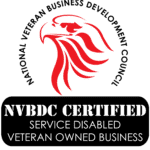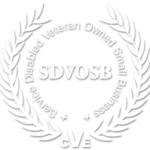In the world of government contracting, various set-aside programs exist to promote the participation of small and disadvantaged businesses. These initiatives not only foster economic growth and diversity but also provide unique benefits to contractors. This article explores the different set-aside programs and their impact on contractor success. We will discuss the 8(a) Business Development program, HUBZone program, Women-Owned Small Business program, All Small Mentor-Protégé goals and Service-Disabled Veteran-Owned Small Business program, highlighting their requirements, applications, and how they contribute to both federal and commercial contracts.
Additionally, we will shed light on how the government utilizes these set-asides to achieve their procurement goals, foster partnerships, and encourage networking opportunities among contractors.
SDVOSB program administration
The government wants to ensure that three percent of the money spent on contracts goes to businesses in the disabled veterans’ business program. If you’re in charge of awarding contracts, here’s what you need to know to meet this goal.
Types of Contracts:
- Competitive Disabled Veterans’ Business Program Set-Aside Contract: If you think at least two responsible disabled veterans’ small businesses can offer a fair price, you can give them the contract.
- Sole-Source Disabled Veterans’ Business Program Contract: If you can’t find multiple qualified businesses, but there’s one responsible business at a fair price, you can award them the contract.
Set-Aside Contracts:
- Contracts worth $250,000 or less are automatically given to small businesses. You can specifically set them aside for disabled veterans’ businesses if possible.
Documenting Your Decision:
- You need to write down why we chose a certain contractor in the contract file. You also need to check if they’re certified in the System for Award Management (SAM).
Special Consideration:
- If a requirement has been accepted under the 8(a) program, it must stay there unless the Small Business Administration (SBA) agrees otherwise.
Finding Contractors:
- You can use the SBA’s Dynamic Small Business Search (DSBS) to find certified disabled veterans’ businesses.
- The SBA’s Office of Veterans Business Development can help you personally.
- You can contact our agency’s Office of Small & Disadvantaged Business Utilization or Agency Small Business Specialist.
- You can announce in FedBizOpps that you’re looking for disabled veterans’ businesses interested in the contract.
- The GSA Schedule program is another way to find disabled veterans’ small businesses.
When you announce that you’re looking for contractors, you should encourage disabled veterans’ businesses to respond and ask for only the necessary information to make a decision. If you’re interested in working with us, click here.
8(a) Business Development program
You can achieve small disadvantaged business goals by utilizing the 8(a) Business Development program. As a contracting officer, you can employ set-aside contracts for eligible businesses.
- For competitive contracts, ensure at least two qualified 8(a) small businesses can submit offers at fair market prices.
- Sole-source contracts can be awarded to responsible businesses meeting pricing criteria.
- Contracts under $250,000 automatically prioritize small businesses, including the 8(a) program.
For set-asides exceeding $250,000, consider socio-economic programs without preference order. Document decision rationale and contractor certification. Released 8(a) requirements require approval. Find 8(a) program-certified businesses through the SBA’s DSBS, local offices, agency assistance, FedBizOpps, or GSA Schedule. Verify eligibility with the local district office.
HUBZone program
The HUBZone program promotes economic development in underutilized business zones. Key points:
- Contract Types:
- Competitive HUBZone set-asides: Awarded when at least two responsible HUBZone small businesses can submit offers at a fair price.
- Sole-source HUBZone contracts: Awarded when no multiple offers are expected, but a qualified HUBZone small business can provide the contract at a fair price.
- Full and open competition contracts: HUBZone small businesses receive a price evaluation preference.
- Small Business Set-Asides: Contracts up to $250,000 are automatically set aside for small businesses. For higher-value contracts, consider socio-economic programs like HUBZone if at least two small businesses can submit bids.
- Documentation: Clearly document your decision-making process in the contract file, including research and the winning contractor’s certification in SAM.
- Finding HUBZone Contractors: Use the SBA’s DSBS for market research. Seek assistance from SBA offices, contact your agency’s small business offices, issue a sources sought announcement in SAM, or explore the GSA Schedule program.
When issuing sources sought announcements, encourage HUBZone businesses to respond and request essential information within a page limit.
WOSB program administration
To support women-owned small businesses, special contracts can be created just for them. These contracts are either set aside exclusively for women-owned small businesses or awarded directly to them without competition. Contracting officers can check if a business is part of the Women-Owned Small Business (WOSB) Federal Contract program by looking it up in the Dynamic Small Business Search database.
There are different types of contracts for women-owned small businesses. Some contracts are set aside only for them, while others can also be given to economically disadvantaged women-owned small businesses. When there’s a good chance that many businesses will want to compete for a contract, a special set-aside contract can be offered. But when it’s unlikely that multiple businesses will be interested, a contract can be given directly to a women-owned small business. However, for large contracts, there needs to be a good reason why only one business is chosen.
For contracts under $250,000, they are automatically reserved for small businesses in general. But if the goal is to prioritize programs like the WOSB Federal Contract program, contracts above $250,000 can be set aside specifically for women-owned small businesses. The reasons for this decision must be explained.
The process to get certified as a women-owned small business has become easier. To check if a business is certified, you can look it up in the Dynamic Small Business Search database or use the Small Business Administration’s online certification process through their website. Businesses can also participate if they are certified by other programs or approved Third-Party Certifiers.
All Small Mentor-Protégé administration
This is a business relationship in which a mentor provides guidance and assistance to a protégé, who is a small business. The specific goals of this relationship are defined in a mentor-protégé agreement, which is created by the protégé in collaboration with the mentor. The agreement includes the goals, a plan to address them, a timeline, and a method for measuring success.
The Small Business Administration (SBA) plays a role in overseeing the Mentor-Protégé program. SBA representatives act as gatekeepers, ensuring that the program’s requirements stated in the Code of Federal Regulations (CFR) are met when approving mentor-protégé agreements.
To approve a mentor-protégé agreement, the SBA assesses certain criteria. Firstly, the assistance provided by the mentor should not primarily serve as a way to secure federal small business set-asides. Additionally, there should be no “determination of affiliation” between the mentor and protégé, except for specific exceptions outlined in the 13 CFR Part 125.9.
For further details and information on the All Small Mentor-Protégé program, including the annual requirements and program regulations, you can refer to the 13 CFR Part 125.9.
Government contracting offers various set-aside programs that play a crucial role in promoting small and disadvantaged businesses. All of these are instrumental in fostering economic growth, diversity, and contractor success. These programs provide unique opportunities for eligible businesses to secure contracts both in the federal and commercial sectors. The government strategically utilizes these set-asides to achieve procurement goals, foster partnerships, and encourage networking among contractors. By understanding the requirements, application processes, and available resources, contracting officers can effectively navigate these programs and contribute to the growth and success of small and disadvantaged businesses in government contracting. You can find more information here.



